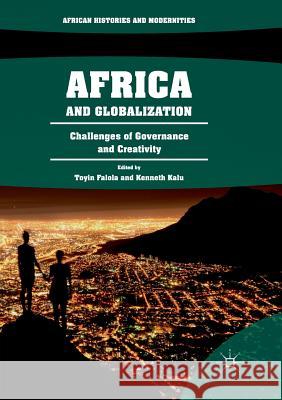Africa and Globalization: Challenges of Governance and Creativity » książka
topmenu
Africa and Globalization: Challenges of Governance and Creativity
ISBN-13: 9783030091019 / Angielski / Miękka / 2019 / 258 str.
Kategorie BISAC:
Wydawca:
Palgrave MacMillan
Seria wydawnicza:
Język:
Angielski
ISBN-13:
9783030091019
Rok wydania:
2019
Wydanie:
Softcover Repri
Numer serii:
000745561
Ilość stron:
258
Waga:
0.32 kg
Wymiary:
21.01 x 14.81 x 1.45
Oprawa:
Miękka
Wolumenów:
01
Dodatkowe informacje:
Wydanie ilustrowane











